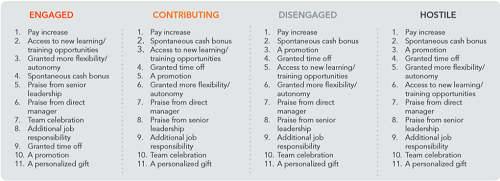Just flying back from HireVue’s Digital Disruption conference this week. This won’t be a post about HireVue’s products. It’s pretty clear they are the industry leader in video digital interviewing technology (I think it’s funny we can’t call it video any longer, it’s now digital interviewing). This is about their 29 year old, Founder and CEO Mark Newman.
The cool thing about Digital Disruption is that it was a pretty intimate event. HireVue’s executive team, hell most of their entire company, seemingly was at this event and interacting with everyone. The event also allowed for a lot of up close and personal time with Mark. Twice during the conference he got up to speak to the group of customers, prospects, analyst, etc. Twice he showed why HireVue has been a fast growing success.
You know those times when you’re so proud, so upset, so frustrated, so happy, when you’re on the brink of showing some ‘real’ emotion? Parents I know will know these moments, when your kid does something so incredible you get choked up even telling others about it. Twice, Mark did this while talking about his company and team. About his vision for his company, about his vision for his team. He is a proud parent of HireVue.
For the past three years or so when talking about HireVue with my HR Pro friends, we’ve all wondered aloud what HireVue’s play was going to be. Do they build out a full platform ATS, HCM, etc.? Do they get bought up by one of the big enterprise plays (Oracle, SAP, etc.)? In my mind it was just a matter of time. A ‘video’ interviewing company was not going to just make it on it’s own.
I was wrong. It doesn’t mean that one day HireVue won’t go down one of these paths, but after spending some time with them it is very apparent that Mark and his team (Chip Luman, Kevin Marasco, Ben Martinez, Loren Larsen and Jared Wilks) have much bigger plans in growing and sustaining HireVue as a player by themselves in the Talent Acquisition space.
I’ve got to spend time with a bunch of different CEOs and leadership teams in our HR space, and across a number of industries in my career. It’s pretty rare that I’ve been around a leader as passionate about his business as Mark, and as engaged in the development of the product moving forward. It was refreshing, it was cool, it was motivating. It made me feel less of a leader in for my own company! And the bastard is only 29! It’s not fair! What I found out about HireVue at Digital Disruption is that this is a company that is far from being done in ‘disrupting’ our industry.
This is something that is very unique in the HR Tech space, where most companies are just trying to build something fast and sell. I found a company and leadership team in HireVue that is trying to build something not for today, but for generations. It’s big goals and big aspirations, and I think they can do it.

